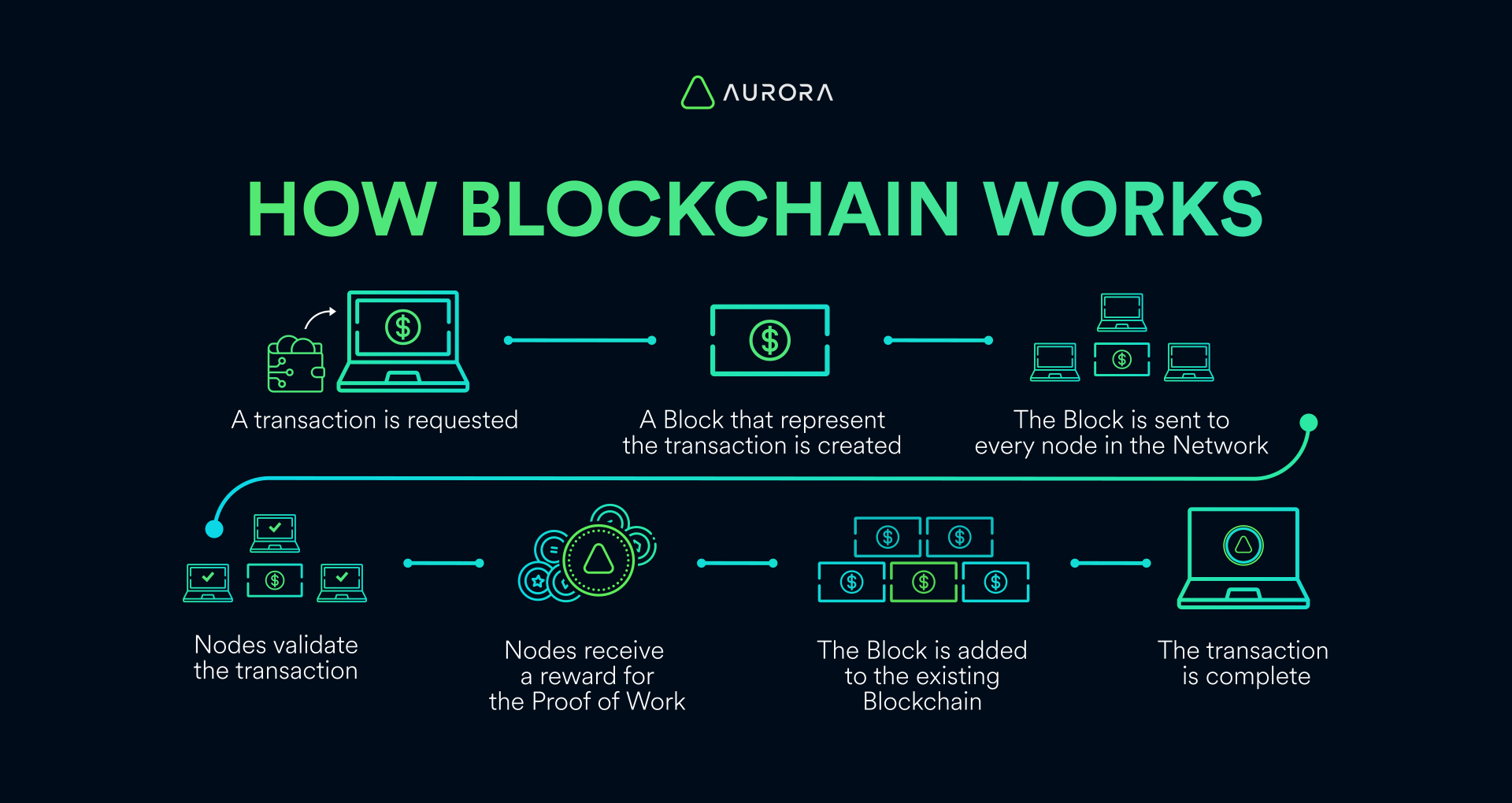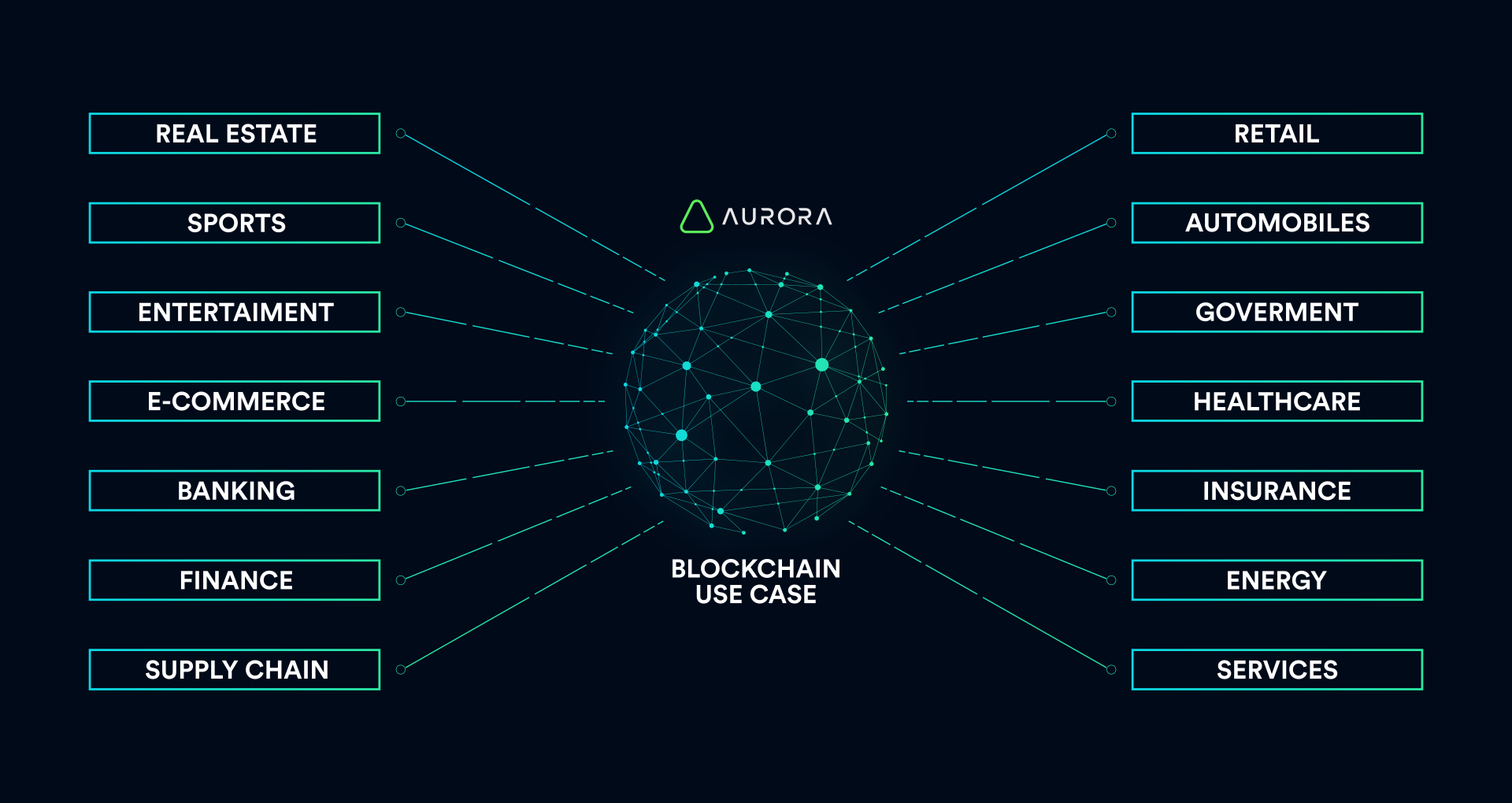Enterprise Blockchain: The $3.1 Trillion Opportunity
All You Need to Know About Blockchain for Enterprise

Blockchain technology is emerging as a transformative force in various business sectors, enhancing operational efficiency and reshaping business models. According to Gartner, blockchain is expected to create an astounding $3.1 trillion in new business value by 2030. PwC echoes this optimistic view, estimating blockchain's contribution to the global economy at $1.76 trillion, or 1.4% of global GDP. Further emphasizing its versatility, Statista notes that while over 30% of the blockchain market is in finance, other rapidly growing sectors include manufacturing, agriculture, distribution, services, and the public sector. This diverse adoption highlights blockchain's wide-ranging applicability and potential.
Key Features of Blockchain Technology
"Blockchain is more than a market. It’s a movement. Blockchain represents a new paradigm for the way information is shared and many technologists claim it could be as impactful as the Internet was." Joe Lubin, co-founder of Ethereum and founder of ConsenSys
Blockchain technology is increasingly acknowledged as a revolutionary development in digital asset management. At its core, it operates as a decentralized and distributed ledger, expertly safeguarding ownership records of digital assets. The technology's hallmark is its reliance on network-wide consensus, which underpins the creation of tamper-proof records. This feature effectively reduces the necessity for central authority and third-party verification, thereby reinforcing the integrity and reliability of data.

As Joe Lubin aptly puts it, blockchain's significance extends beyond its technical framework, marking a paradigm shift in global information and value exchange. Similar to the internet, blockchain is not merely a technological innovation; it's a movement that redefines digital interactions. This positions blockchain as a key technology poised to revolutionize various industries with more secure, transparent, and efficient transactions.
Blockchain vs DLT
Blockchain and Distributed Ledger Technologies (DLT) are often conflated but represent distinct concepts in digital ledger technology. While all blockchains are DLTs, not all DLTs qualify as blockchains. This distinction is vital for enterprises considering digital transformation, as the choice between blockchain and DLT depends on specific needs around identity management, privacy, transparency, and the shift from centralized to decentralized systems.
Blockchain, a type of Distributed Ledger
Technology (DLT), is renowned for its decentralized, permissionless nature, with networks like Bitcoin and Ethereum exemplifying this through open participation and principles of transparency, immutability, and distributed consensus. Despite this, we will continue using 'blockchain' as a general term due to its widespread recognition, acknowledging the diversity within the field that includes various forms of DLT. This spectrum ranges from permissioned networks, often preferred by traditional businesses for controlled access and enhanced privacy and compliance, to the full decentralization of public blockchains. Our next post will delve into these varied forms, further clarifying the nuances within blockchain technology.
No Size Fits All for Enterprise Blockchain
Enterprise blockchain is inherently flexible, designed to cater to the specific demands of businesses and consortia, distinguishing it from the more generalized public blockchain models. This field, still in its developmental phase, lacks a universal blueprint, presenting both challenges and opportunities for innovation. Enterprises must navigate this landscape by selecting a blockchain architecture that aligns with their unique operational, legal, and strategic needs, influenced by factors like business nature, data handling, transaction speed, and privacy requirements. This need for bespoke solutions in enterprise blockchain not only addresses distinct challenges but also enables organizations to innovate beyond traditional confines, crafting tailored platforms for their specific use cases.
Blockchain Applications for Businesses

Blockchain technology is reshaping business operations across various sectors due to its unique and valuable features:
Payment Processing: At the forefront of blockchain applications is its role in facilitating decentralized, peer-to-peer payment systems through cryptocurrencies. This technology has been embraced by businesses, including major fast-food chains like Subway and Burger King in Europe, indicating a growing trend towards cryptocurrency acceptance.
Secure Record-Keeping: Blockchain's robust encryption capabilities offer a secure and efficient alternative for storing and transferring records. This is particularly impactful in healthcare, where blockchain enables the safe sharing of electronic health records, protected by advanced encryption methods.
Supply Chain Optimization: Blockchain technology is revolutionizing supply chain management by enhancing transparency and efficiency. A notable example is Walmart's use of blockchain to dramatically shorten the time required to trace food products, highlighting the technology's potential to streamline complex supply chains.
Smart Contracts: Blockchain supports automated, self-executing contracts, which facilitate smoother and more secure business transactions. These smart contracts ensure that payments are released only upon the fulfillment of agreed terms.
When it comes to adoption, the finance sector is at the forefront of embracing blockchain for its enhanced security and accelerated transaction capabilities. Prominent financial institutions like JPMorgan Chase, with their JPM Coin, and HSBC, which has been actively involved in blockchain-based trade finance platforms, are examples of this trend. These global corporations are using blockchain to facilitate swift and secure international payments, showcasing the technology's potential in the financial world.
Moving beyond finance, blockchain's impact is gradually extending to other sectors such as gaming and energy, each finding unique applications for the technology. In the gaming industry, companies like Ubisoft and Animoca Brands are using blockchain for secure digital asset management, enhancing the integrity and ownership of in-game assets. In the energy sector, blockchain is being employed for efficient energy trading and management, with companies like Siemens and Acciona leading the way in integrating blockchain for energy solutions.
However, blockchain's benefits are not limited to just the big players; smaller enterprises are increasingly exploring this technology, recognizing its potential to enhance their efficiency and market competitiveness. This widespread adoption underscores blockchain's versatility and its role as a driver of innovation across industries.
To Summarize
- Blockchain is transforming business across sectors, with a potential value of $3.1 trillion by 2030.
- Key blockchain characteristics include distribution, encryption, immutability, tokenization, and decentralization.
- Enterprise blockchain offers bespoke solutions, addressing distinct challenges, and enabling innovation. It's not one-size-fits-all; choices depend on needs around identity, privacy, and decentralization.
- Gaming and energy sectors are catching up, with major corporations like IBM and Tesla exploring blockchain.
- Smaller enterprises are also exploring blockchain for enhanced efficiency and competitiveness, highlighting its versatility and role as an innovation driver.
In our upcoming episodes, we will delve into different blockchain types and provide valuable insights for navigating the world of enterprise blockchain. Follow us not to miss any episode. If you would like a consultation on how your business can benefit from blockchain technology, book a call with one of our experts.
About Aurora
Powered by its high-performance EVM, and fully trustless Rainbow Bridge, Aurora combines an Ethereum compatible experience with the modern blockchain performance of NEAR Protocol. Aurora provides an optimal environment for the creation of scalable, carbon-neutral, future-safe, and low-cost Web3 services, as well as the perfect tools to bring to life your Web3 initiatives. Try Aurora Cloud, our all-in-one blockchain solution for enterprises, and get your Web3 journey started!
